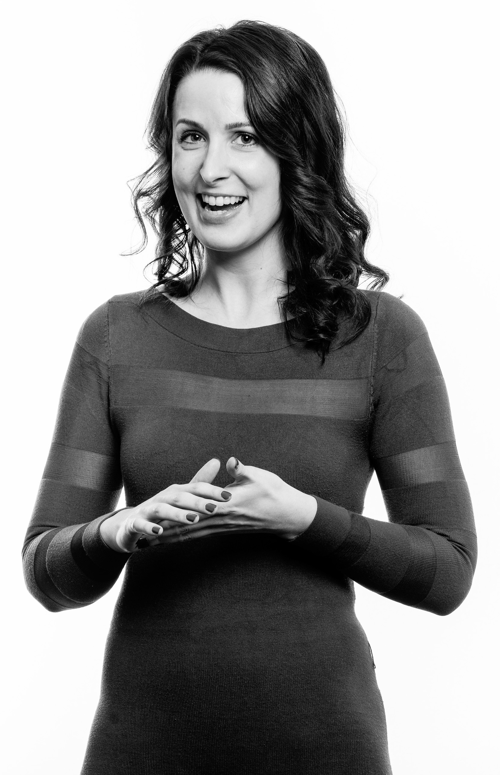Nienke Wevers
This interview is part of a series of conversations with the people working at Mimetas. The 'I' in Mimetas focuses on the personal side of the people that drive our world. Today we sit down with Nienke Wevers, Senior Scientist and controversial ethicist at Mimetas.

What does an average day for you look like working at Mimetas?
Every day is different. Some days are chock-full with meetings; others are calmer. Every week I have personal meetings with scientists that I supervise. I get updates on the lab's latest developments, and we discuss the experiments for the upcoming week. Also, I often talk with clients about our current and future projects. Lastly, I have meetings with colleagues about general developments and organizational matters. Lots of sitting and talking. Other than that, I work on project management and planning, and the modeling of blood-brain barriers. Currently, I do this at home – I put my laptop on the table and get going!
How did you get your academic career started, and what is so interesting about doing research?
I did a bachelor's in bio-pharmaceutical sciences at the Universiteit Leiden. During a minor, I ended up at the otolargynology (ear, nose, throat) department of the Leiden Universitair Medisch Centrum. I did a small internship where I differentiated stem cells from hair follicles of mice to neurons. Instantly, I fell in love with neurons and neuronal cell culture. Doing the master Neuroscience at the Vrije Universiteit was a no-brainer. During that time, I did more academic internships. Although I liked the research, I knew that an academic career would not be for me. My final internship I did at Mimetas, which was six years ago. Here, I do wonderful research in a way that fits me – goal-oriented and yielding results that can be quickly applied in the real world.
What is your favorite music genre?
I like a large variety of music. Most of all, Caribbean Music, like Salsa, Bachata, and Reggaeton. For a couple of years, I took Bachata dancing lessons, and I sometimes miss it. Sadly, it's never played in the lab since most colleagues don't share my love of Bachata. I personally dislike hardstyle, so to keep everyone happy in the lab, we play the middle-of-the-road type of music—usually, some radio station or top 40 playlists.
If you could send a message to yourself 10 years ago, what would you tell the younger you?
Enjoy everything just a bit more. I was an earnest student in high school, working 9.00 – 16.00 every day. I grew up in a small town, where I didn't really go out. I was always quite serious, living like I was 80 years old already! It got a little better when I was 22 or something. I must confess that I don't regret it now, but I would have liked to have done it a little different.
Is it better to be perfect and late, or good and on time?
Good and on time. Especially if you work with customers most definitely, being on time is very important. If you consistently deliver well on time, that's better than perfect and late. I want to add, I think that decent, as opposed to good and on time, is worse than perfect and late.
Tell me something that's true, that almost nobody agrees with you on.
A very Dutch (and controversial) topic: 'fulfilled life.' With modern-day healthcare, we can cure many people of their diseases, making us older and older. Very often, this works as intended, but in too many cases, the quality of life diminishes significantly. Let's think hard about how far we want to go in patient treatment. I think that quality of life should be paramount. Also, every person should get to decide when their life is fulfilled and when it's time to move on.
What is your favorite quote, song or belief, anything that you live by?
In Dutch, we have the phrase 'nee heb je, ja kun je krijgen', which roughly translates to 'nothing ventured, nothing gained' in English. I think it's straightforward and true. When I'm insecure about something in my life, this is always in the back of my mind. In simple, you regret the things that you didn't do, not the things that you did do.
